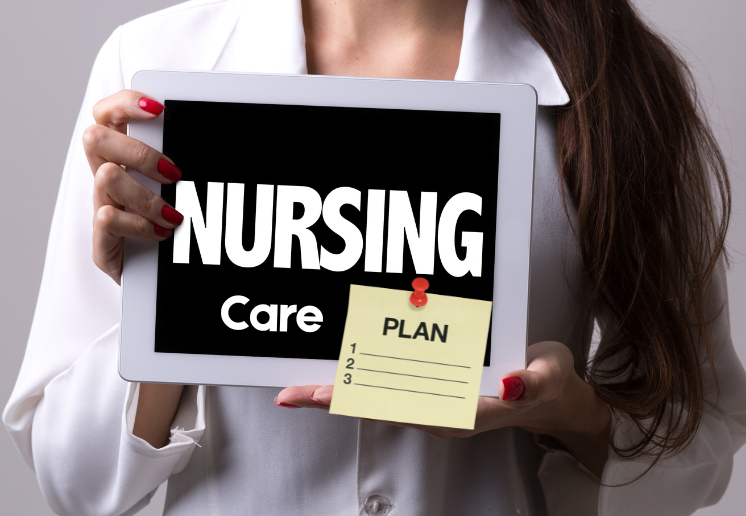Table of Contents
As you may already know, healthcare in Australia costs little to nothing compared to other countries. Whether you have got a small bleeding scratch or you’re having a baby, it’s good and economical to go to a hospital or clinic.
So you can understand how career-friendly it is to become a registered nurse in Australia. But how do you go about it? Are there any specific eligibility requirements? Do you need some specific skills and knowledge to apply for registration? That’s what you’ll learn through this blog.
Plus, we’ll see how the FBNPC’s NCLEX prep course will help. Let’s begin.
Who is a Registered Nurse?
A registered nurse (RN) is a healthcare professional who has completed a nursing education program and passed a licensing examination. They are responsible for providing a wide range of nursing care to patients, including assessing their health status, developing treatment plans, and administering medications. They also educate the patients and their families about their condition.
RNs work in various healthcare settings, such as hospitals, clinics, nursing homes, and home health agencies. They play a vital role in ensuring the well-being of patients and contributing to the overall quality of healthcare.
What Do You Require to Become the Best Registered Nurse in Australia?
To become a nurse in Australia, you’ll need to complete a diploma of nursing for a combination of education, skills, and experience. Here are the key registration standards and qualification criteria with respect to education and skills:
Education
- Nursing Degree: To begin your nursing career, you’ll need to complete a bachelor of nursing degree from a recognized Australian university. This degree program will provide you with the theoretical knowledge and clinical experience necessary to become a registered nurse.
- Registration: Once you’ve completed your degree or diploma of nursing, you’ll need to register with the Nursing and Midwifery Board of Australia (NMBA). This registration ensures you meet the minimum standards of practice and are authorized to work as an RN in Australia.
Skills
- Clinical Skills: You’ll need to possess a wide range of clinical skills for succeeding in the nursing profession, including:
- Assessing patients’ health status
- Developing and implementing treatment plans
- Administering medications
- Providing patient education
- Performing procedures such as wound care, catheterization, and blood draws
- Communication Skills: Effective communication is essential for registered nurses. You’ll need to be able to communicate clearly and compassionately with patients, their families, and other healthcare professionals.
- Critical Thinking: Registered nurses must be able to think critically and make informed decisions, even under pressure.
- Empathy: Empathy is crucial for providing compassionate and effective care to patients.
Besides the formal education and skills, you will also need relevant nursing experience through clinical placements. You can also attend conferences, workshops, and online courses.
How to Become the Best Registered Nurse in Australia?
Becoming the best registered nurse in Australia is a multifaceted journey that requires dedication, continuous learning, and a genuine passion for patient care. Here’s how you go for a career in nursing in The Great Outback:
Get your Vaccinations and a Working with Children and Police Check
As a nurse, you’ll be in close contact with patients who may have weakened immune systems or be vulnerable to infectious diseases. Vaccinations protect both you and the people you care for. Some of the commonly-required vaccinations are:
- Hepatitis B: Protects against a viral infection that affects the liver.
- Influenza (flu): Reduces your risk of getting and spreading the flu.
- Measles, Mumps, Rubella (MMR): Protects against these highly contagious viral illnesses.
- Varicella (chickenpox): Important if you haven’t had chickenpox or been vaccinated previously.
- Pertussis (whooping cough): Protects against a serious respiratory infection.
- COVID-19: May be required by healthcare facilities.
Your doctor, local health clinic, or some pharmacies can provide the necessary vaccinations.
You will also need a Working with Children Check (required in some states). It ensures that people who work with children have no history of child-related offenses. While not all nursing roles involve direct care of children, many do (e.g., pediatrics, school nursing).
You’ll need to apply through the relevant screening unit in your state or territory. This usually involves providing identification, completing an application form, and paying a fee.
Moreover, a Police Check (required in some states) reveals any criminal history that might make you unsuitable to work as a nurse. That is to ensure patient safety and maintain public trust in the profession.
Obtain a Nursing Degree
The most common and direct pathway to becoming an RN in Australia is the Bachelor of Nursing (BN). It’s a three-year full-time degree (or equivalent part-time) that provides a comprehensive foundation in nursing theory and practice.
- Accreditation: Ensure the program is accredited by the Australian Nursing and Midwifery Accreditation Council (ANMAC).
- Reputation: Look at university rankings, graduate employment rates, and student reviews.
- Specializations: Some universities offer specializations within the Bachelor of Nursing (e.g., mental health, child and family health, aged care).
- Clinical Placements: High-quality clinical placements in diverse healthcare settings are essential for gaining practical experience.
Post this degree, you’ll be educated and skilled to practice as a nurse. But there’s still the matter of being registered. That’s where NCLEX comes in.
Take the NCLEX Exam
The NCLEX-RN (National Council Licensure Examination for Registered Nurses) is a crucial step to becoming a registered nurse in Australia. It’s a computer-based exam designed to assess your knowledge, skills, and abilities essential for safe and effective nursing practice.
Being a CAT exam, it adapts to your performance. So the better you do, the more difficult the questions get. So basically, if the exam is getting more difficult, it means you’re doing well.
Here are the topics it covers:
- Safe and Effective Care Environment: Management of care, safety and infection control.
- Health Promotion and Maintenance: Growth and development, prevention and early detection of disease.
- Psychosocial Integrity: Coping and adaptation, therapeutic communication.
- Physiological Integrity: Basic care and comfort, fluid and electrolyte balance, pharmacological and parenteral therapies, reduction of risk potential, physiological adaptation.
To pass this exam, you can opt for our NCLEX program and follow our NCLEX study plan to get the best results.
Register with the Key Nursing and Healthcare Bodies
This vital step involves registering with the Nursing and Midwifery Board of Australia (NMBA) through the Australian Health Practitioner Regulation Agency (AHPRA).
AHPRA is the national organization responsible for regulating health practitioners in Australia. They work to protect the public by ensuring that only qualified and competent practitioners are registered to practice.
The NMBA is responsible for regulating the nursing and midwifery professions in Australia. They set national standards, develop codes of conduct, and handle registration and notifications (complaints).
AHPRA works with the NMBA to manage the registration and accreditation processes for health practitioners across Australia.
Grow Your Practice (with an Advanced Degree or Specialization)
The final step goes beyond the fundamentals of nursing to become more skilled, knowledgeable, and specialized. This often leads to greater job satisfaction, more career options, and potentially higher earning potential.
After you have completed an undergraduate degree and gone through the registration process, there are two ways to go: Advanced Degrees and Specializations.
Advanced Degrees
If you want to further your studies, there are two ways to go
- Master of Nursing (MN or MSN): This is a popular choice for nurses who want to advance their career as a nurse or midwife. It typically takes 1-2 years full-time and offers various specializations, like clinical nurse specialist, nurse practitioner, nurse educator, research, etc.
- Doctor of Nursing: This terminal degree in nursing focuses on applying research to improve practice and patient outcomes. DNP-prepared nurses often work in leadership, policy, or advanced clinical roles.
Specializations
Even without a master’s degree, you can specialize in a particular area of nursing. Many hospitals and healthcare organizations offer professional nursing courses and certifications with many courses to choose, such as:
- Critical Care Nursing
- Emergency Nursing
- Oncology Nursing
- Pediatric Nursing
- Geriatric Nursing (old aged-care)
- Mental Health Nursing
- Operating Room Nursing
- Midwifery
Make sure you identify your interests, research your options, seek mentorship, and keep up the learning under experts’ supervision.
If you need help with becoming the best registered nurse in Australia, register with FBNPC today!
But what if you have completed your nursing education from outside Australia? That means you are internationally educated. How do you become an enrolled nurse in Australia then?
IEN Perspective of Becoming a Registered Nurse in Australia
Are you someone from countries like India, Pakistan, Nepal, Nigeria, Philippines, or one of the European Countries trying to become a registered nurse in Australia? Then you need to follow the RN process from an IEN perspective.
This specialized process involves the assessment of qualification, skills, and registration with the AHPRA (Australian Health Practitioner Regulation Agency). Let’s look at the complete process.
Comply With the Educational and Experience Requirements
The first step of the process is ensuring your nursing education is equivalent to the bachelor’s degree. That’s where the Australian Nursing and Midwifery Accreditation Council (ANMAC) comes in. They offer a skills assessment specifically for internationally qualified nurses and midwives.
The registration requirements for nursing in Australia involve 2 years or around 450 hours of practice in their country of domicile. This can include direct clinical care, nursing education, research, or management roles, as long as they’re relevant to your nursing registration.
Take the English Language Proficiency Test
English proficiency is critical for a career as a registered nurse in Australia to ensure safe and effective communication with patients and colleagues. So the nurses from non-English-speaking countries like India, Pakistan, Nepal, Nigeria, and the Philippines, need to take tests like IELTS or OET.
IELTS (International English Language Testing System)
- Widely recognized: Accepted by many organizations beyond healthcare.
- Two versions: Academic (for university) and General Training (for work/migration). You’ll need the General Training version.
- Four sections: Listening, Reading, Writing, and Speaking.
- Scoring: Each section gets a score from 0-9, and an overall band score is calculated. For nurses in Australia, you typically need an overall band score of 7 with no individual band less than 7.
OET (Occupational English Test)
- Healthcare-specific: Designed to assess English used in healthcare settings.
- Tailored to professions: Has 12 different versions for various healthcare roles (nursing, dentistry, pharmacy, etc.).
- Four sub-tests: Listening, Reading, Writing, and Speaking, all related to healthcare scenarios.
- Scoring: Each sub-test is graded from 0-500 in 10-point increments. You need to achieve a B grade (typically around 350) in each sub-test.
No matter which test you choose, thorough preparation is crucial. You need to familiarize yourself with the test format and content, take practice tests, and a preparation course. Make sure you allow yourself ample prep time to get the best score and have a flying start to your nursing career.
Complete a Skills Assessment
After proving your English proficiency with IELTS or OET, it’s time to complete a skills assessment test, i.e. Outcome-Based Assessment (OBA). This exam would be necessary for those who come from countries that do not have automatic recognition agreements with Australia. For example, candidates from India, Nepal, Pakistan, Nigeria, and the Philippines must complete this skills assessment.
It offers a consistent way to assess the knowledge, skills, and professional judgment of IENs against the standards expected of Australian nurses.
It’s not just about what you learned in school, but whether you can apply that knowledge effectively in a clinical setting. Ultimately, the OBA helps ensure that all nurses practices in Australia meet the necessary standards for safe and competent care, and of course, some key interpersonal skills.
The OBA is split into two key stages:
Stage 1: Multiple Choice Question (MCQ) Exam
- Computer-based: Taken at a designated testing center.
- Tests theoretical knowledge: Covers a broad range of nursing topics. These include professional practice and ethics, patient assessment and management, medication administration, and legal and regulatory frameworks.
Stage 2: Objective Structured Clinical Examination (OSCE)
- Practical assessment: Simulates real-life nursing scenarios in a controlled environment.
- Assess clinical skills: You’ll be observed performing various nursing tasks. These include patient assessment and communication, medication administration and calculations, wound care and infection control, and emergency response.
While the NMBA sets the standards, the Australian Health Practitioner Regulation Agency (AHPRA) is responsible for administering the OBA process. You’ll need a referral letter from AHPRA to be eligible to take the OBA.
Register with the AHPRA
Next, we come to the consequential stage of the RN process in Australia. After you have passed the OBA (if applicable), it’s time to apply for the registration with AHPRA. You’ll find the application form on the official website. For this, you must meet a criteria and need some key documents, including:
- Proof of identity (passport, driver’s license)
- Evidence of qualifications and industry experience
- Results of the OBA
- Declaration of good character
- Payment of the registration fee
AHPRA will assess your application and may request additional information if needed. If successful, AHPRA will register you as a nurse in Australia.
Complete a Bridging Program
If your existing qualifications don’t meet the standards set by the Australian authorities, you may need to complete a bridging program. The IRON program (Initial Registration for Overseas Nurses) acts as a bridge between your existing qualifications and the specific requirements for nursing practice in Australia.
This program usually lasts 3 to 6 months and focuses on equipping you with knowledge of the Australian healthcare system and advanced clinical skills.
The key topics covered in this program include:
- Australian healthcare system: Structure, policies, and legal frameworks.
- Professional practice: NMBA standards, codes of conduct, and ethics.
- Clinical skills: Refresher and updates on essential nursing skills.
- Communication: Effective communication with patients and colleagues in the Australian context.
- Cultural safety: Understanding and respecting cultural diversity in healthcare.
Make sure you choose an IRON program approved by the NMBA. it will improve your competency and get you familiar with the system. You’ll also get more networking opportunities for better employability.
Apply for a Temporary Visa
After you are done with the educational side of the RN process, it’s time to look for the visa options, so you can actually work in Australia. To that end, you can go for the Temporary Skill Shortage (TSS) Visa (Subclass 482).
This visa is designed to fill Australia’s skill shortage, including in the healthcare sector. A crucial requirement is that you have an approved Australian employer who is willing to sponsor you for this visa.
The two streams of this visa include:
- Short-term stream: Allows you to work in Australia for up to 2 years (or up to 4 years if an international trade obligation applies).
- Medium-term stream: Allows you to work in Australia for up to 4 years. This stream may also provide a pathway to permanent residency.
For either steam, there are some key requirements, including skilled occupation, skills assessment, English language proficiency, and healthcare and character certifications.
Get a Secure Employment
Finally, you can put all your hard work into action. Securing employment as an IEN in Australia can take effort, but it’s absolutely achievable. There are various healthcare settings across Australia with a strong demand for nurses, particularly in certain specialties and locations.
You can go through different online job boards, healthcare recruitment agencies, hospital websites, and network with the experts to secure the best RN employment in Australia.
If you are an internationally-educated nurse trying to be an RN in Australia, consult with FBNPC and prepare for the process effectively.
FAQs on Becoming a Registered Nurse in Australia
Q.1 What is the nursing registration process in Australia?
After completing your degree, you’ll need to register with the Nursing and Midwifery Board of Australia (NMBA). This involves submitting documentation and potentially undergoing English language testing.
Q.2 Can international students study nursing in Australia?
Yes, international students can study nursing in Australia. Many Australian universities offer nursing programs specifically designed for international students.
Q.3 What is the average salary for a registered nurse in Australia?
The average salary for registered nurses in Australia is between $75K and $95K. The exact figure varies depending on factors such as experience, location, and specialization. However, nurses in Australia generally enjoy competitive salaries and benefits.
Q.4 What are the career advancement opportunities for registered nurses in Australia?
Registered nurses in Australia can specialize in various areas, such as mental health, emergency nursing, or aged care. They can also pursue advanced roles like nurse practitioners or clinical nurse specialists.
Q.5 How long does it take to become a registered nurse in Australia?
The duration to become a registered nurse in Australia varies depending on your previous qualifications and the program you choose. Bachelor of Nursing programs typically take 3-4 years to complete.
So What’s the Outlook of Nursing in Australia?
Becoming a registered nurse in Australia is a rewarding journey that requires dedication, hard work, and a genuine passion for patient care.
First, prioritize your health and safety, as well as that of your future patients, with the necessary vaccinations and legal checks. Next, you obtain a solid educational foundation with a nursing degree. After graduation, you’ll take the NCLEX, a necessity in assessing your competency and readiness in the field. Finally, you’ll have to register with AHPRA and the NMBA.
If you need further help with becoming an RN in Australia, consult with us today!



